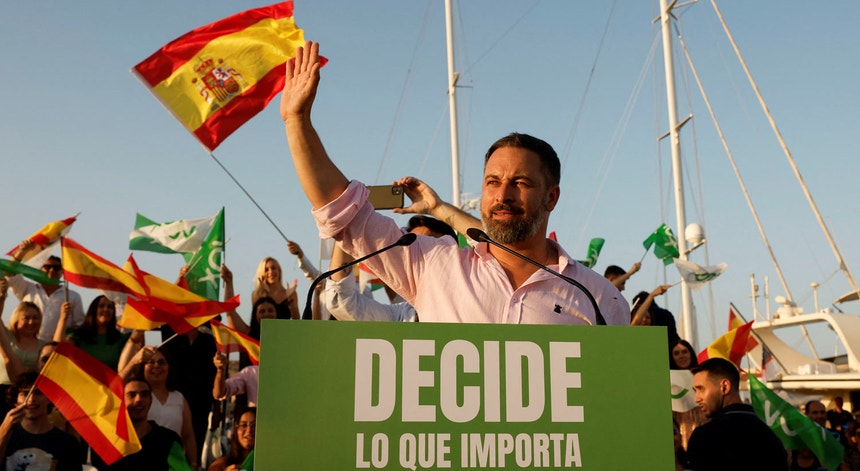Sweden, Italy, Finland, Greece, Germany – a growing number of European countries have celebrated populist victories. and right-wing and far-right deals in legislative, regional and local elections in recent months.
Spain could be the next country on the list, with Alberto Feijo’s Popular Party (PP) and Santiago Abascal’s Vox forming a government. This is in line with the prospects outlined by polls, following the victory of Spain’s right and far-right in regional and local elections on May 28.
In the past year, the far right has achieved unprecedented results in a democracy: in Italy it became the leading political force in the country, in Sweden and Finland it became the second largest in both countries, entering governments and imposing its electoral program, in Greece it achieved unprecedented representation in parliament and in Germany it was able to win its first regional government.
It all started in Sweden, In September last year, After the Swedish Democratic Party (SD) Led by Jimmy Akesson – a conservative and nationalist party with neo-Nazi roots – it came to power through a coalition with current Prime Minister Ulf Kristerson’s conservative Moderados party. became the second largest political force in the country.
Finland arrived. After winning the April 2023 election, With 20 percent of the vote, the top vote-getter has a margin of 0.2 percentage points. Rika Burra’s extremist Finnish Party (PS) movement, known as “True Finns”, managed to join the coalition. The traditional right-wing party, the National Coalition Party (PCN), is led by incumbent Prime Minister Petteri Orbo.
The Finns Party has not only secured party leader Rika Burra the post of Deputy Prime Minister, but a third of the key ministries in the current government. In addition, Jussi Halla-Aho, current Speaker of the Finnish Parliament and former leader of the True Finns Party, announced his intention to run in the presidential election scheduled for January 2024.
Last June, in Greece, with clear success (40.5 percent votes), Right-wing conservative New Democracy (ND) party, Kyriakos Mitsotakis, received a new mandate. The far-right has also increased its presence in the Greek parliament: it took nearly 13 percent of the vote between the right-wing Orthodox Christian Niki party, the neo-Nazi Spartanos party backed by the former Golden Dawn leader, and the ultranationalist Greek Solution (EL).
The most recent advance of the far right took place in Germany, On June 25, Robert Sesselmann’s Alternative for Germany (AfD) won regional elections for the county of Schönberg in Thuringia, in the eastern part of the country, with 53 percent of the vote.
Finally, the rise of the far-right appears to be headed for the Iberian Peninsula, on the back of an alliance between the Popular Party and Vox.
Vox wants to reach Monclova after gaining administrative power in the Autonomous Communities, “Apenas Yes is Yes”, using a populist, nationalist and rural discourse, promises to fight immigration and eliminate social rights and freedoms such as abortion law, euthanasia law or sexual freedom guarantee law.
Santiago Abascal, the leader of the Spanish far-right, thinks Sega, led by Andre Ventura, can achieve the same power in Portugal.
RTP reporter Ana Romeu in Spain attended the VOX rally in Guadalajara, the autonomous community of Castile and La Mancha.
After years of social progress in Europe, there is a moment of conservative reaction, taking advantage of the effects of various crises. – Financial, humanitarian, energy, climate, health or the war in Ukraine. So-called populist forces base political discourse on socio-economic problems, disillusionment, elite distrust and uncertainty. A change of course solves all problems.
ohEU citizens will face several decisive elections: in Spain, already this Sunday, in Poland, in November 2023, and in Belgium and Europe, in June 2024.

“Hardcore explorer. Extreme communicator. Professional writer. General music practitioner. Prone to fits of apathy.”

